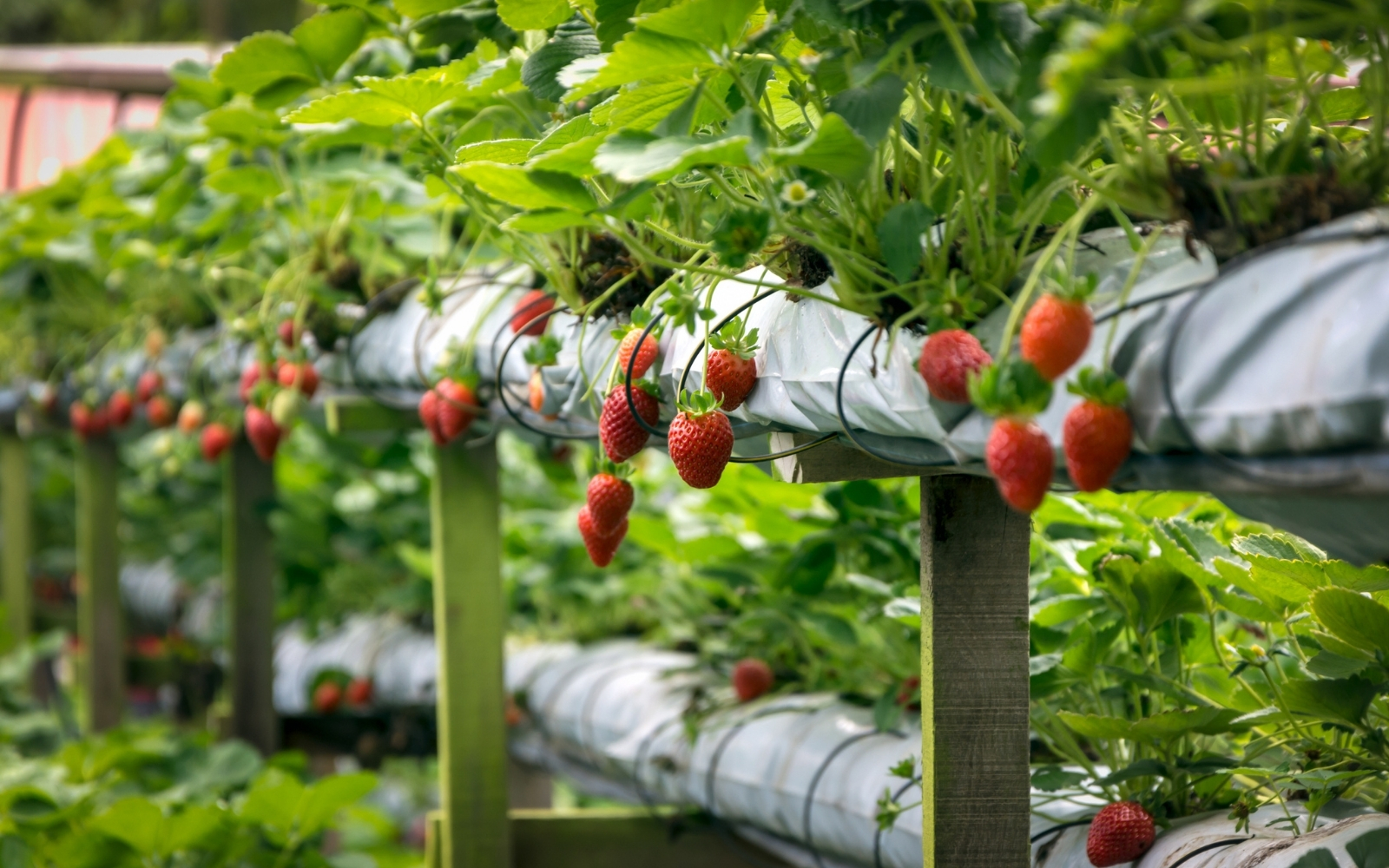10 AgriFoodTech Battles of 2024: Hard Lessons Learned and Insights for the Industry
The AgriFoodTech sector had a tough year in 2024, facing unprecedented challenges that continue to reshape the industry landscape. Investments plummeted, the economy slumped, and the industry continue to face regulatory hurdles, let alone the complexity of addressing changing consumer needs that even the most promising startups are grappling with a harsh new reality. Some companies that were once at the top of their game succumbed to the economic downturn. We looked into AgriFoodTech’s toughest battles of 2024, what’s behind these failures, and what are the key learnings to help guide the industry’s future.
A Look at Some of the Main AgriFoodTech Startup Struggles of 2024
AgriFoodTech startups need to navigate a handful of hurdles and restrictions they usually don’t have control over. Although some founders were able to keep their business going by making necessary adjustments and even sacrifices just to keep their business going, some other businesses weren’t so lucky. While we think it’s important to ‘celebrate’ the world’s AgriFoodTech entrepreneurial talent and raise awareness about the solutions these companies have built, we acknowledge not all ventures will be successful. When closure is the last or only resort, we strongly believe some important lessons can be drawn to help other entrepreneurs and industry professionals to take advantage of them to understand what went wrong
Here are some of the companies in the sector that ceased operations or faced unprecedented challenges in 2024:
Bowery
Founded: 2015
Total Funding: Raised $700M in venture capital from notable organizations like General Catalyst, GV, and Temasek, as well as A-listers Natalie Portman, Justin Timberlake, and Lewis Hamilton.
Innovation: Used controlled environment techniques to grow pesticide-free vegetables and herbs, such as lettuce, kale, and basil.
Milestones:
- Supplied fresh produce to major retailers at over 850 locations, including Whole Foods, Walmart, Albertsons, and Giant Food, as well as e-commerce retailers like Amazon and Hungryroot.
- 2021: Made headlines after securing $300M in a Series C round led by Fidelity, valuing the company at $2.3B—the highest for an indoor farm startup.
- Opened Farm X in New Jersey to scale R&D and the cultivation of new crops.
- 2022: Opened a commercial smart farm in Pennsylvania.
- Acquired California-based robotics startup Traptic to add strawberries to its offering.
Challenges:
- 2023: Laid off employees and delayed opening new facilities in Texas and Georgia to cut costs.
- In May, the company was hit by the pathogen phytophthora, wiping out vast amounts of its produce and spreading to its other facilities.
- Bowery invested in building separate irrigation systems to isolate the phytophthora, but to no avail.
Closure: The company could not sell any of the produce exposed to the pathogen, and its yield dramatically decreased, resulting in distributors ending their partnership with the vertical farm giant. Bowery tried to secure financing or reach a deal to sell the company, but it was unsuccessful. In November 2024, it closed its doors, laying off 187 workers.
Ÿnsect

Courtesy: Ynsect
Founded: 2011
Total Funding: Raised almost $580M in funding from investors, including Astanor and Robert Downey Jr.’s Footprint Coalition, as well as from French government sources like Bpifrance and Caisse des Dépôts.
Innovation: Uses AI and robotics to operate large-scale insect farms to transform mealworms into organic fertilizer and protein powder for animal feed and human consumption.
Milestones:
- 2020: Announced plan to build Ÿnfarm—a 45,000m2 facility in Amiens, France, to produce up to 200,000 tonnes of ingredients annually.
- Raised $372M in a Series C, upgrading it to unicorn status.
- 2023: Secured $175M in 2023 to further finance the construction of its plant.
- Launched its new B2B2C brand, Sprÿng, for the pet food market in May.
- 2024: Operations at the completed Ÿnfarm started to meet the $200 million worth of contracts with new and existing clients.
- Earned regulatory approval from the Association of American Feed Control Officials to sell its Protein70 ingredient for use in dog food.
Challenges:
- Faced financial problems due to rising energy and raw materials costs and limited capital.
- Closed down its Netherlands facility, which was part of its Protifarm acquisition in 2021, laying off thirty-five employees
- Laid off 38 other roles in its Paris headquarters.
Closure: In September 2024, after struggling to secure funding for its expansion plans, Ÿnsect filed a safeguard plan with a French commercial court to oversee its reorganization as operations continue, jobs are kept, and debts are paid.
SciFi Foods
Founded: 2019
Total Funding: Raised over $40M from leading firms like Andreessen Horowitz, Valor Siren Ventures, BoxGroup, and the rock band Coldplay.
Innovation: Uses synthetic biology to combine cultivated beef cells with plant-based ingredients to create a hybrid meat that delivers on taste at lower manufacturing costs.
Milestones:
- 2022: Emerged from stealth after closing a $22M Series A round.
- Announced building a pilot facility in the Bay Area, where beef cell lines would be grown in serum-free media using single-cell suspension techniques to make its hybrid burgers more affordable by just $10 apiece.
- Ohio State University’s life cycle assessment of SciFi Foods’ hybrid burger found that the meat analog generates 87% less emissions and requires 39% less energy, 90% less land use, and 96% less water use than conventional beef patties.
- 2023: Opened its pilot plant in California to produce massive amounts of its hybrid burger as it prepared to apply for FDA/USA regulatory approval.
- Produced its cell-cultured beef at a commercial scale in a 500-liter bioreactor at its newly opened facility.
Closure: In June 2024, the company announced its shutdown after its unsuccessful attempt at securing additional funding to scale its product and reach price parity. It appointed an advisory firm to facilitate the sale of its assets.
SciFi Foods co-founders Joshua March and Dr. Kasia Gora have released a guide to a graceful exit for startups finding themselves toward the inevitable end of their journey.
Ordinary Seafood
Founded: 2022
Total Funding: Raised $2.5M over three rounds
Innovation: Developed a portfolio of three innovative products: plant-based tuna, smoked salmon, and shrimp
Milestone: In 2023, its plant-based products became available at METRO outlets across Germany and sold through various food service providers like Chefs Culinar, Nordic Food Service, Frischdienst, and Vegilife.
Closure: In February 2024, Pluschke announced that Ordinary Seafood was forced to cease operations after struggling to secure the necessary capital to sustain its operations.
Sundial Foods
 Courtesy: Sundial Foods
Courtesy: Sundial Foods
Founded: 2019
Total Funding: Raised a total of $4M from investors like Nestlé
Innovation: Produces vegan chicken with skin and bone
Milestones:
- 2020: Participated in Nestlé’s R&D Accelerator program
- Co-branded a product with Nestlé’s Garden Gourmet, which launched in over 40 retail stores in Switzerland
- 2021: Secured $4M in a seed round headed by Nestlé
- 2022: Launched its plant-based chicken wings in numerous New York and San Francisco restaurants.
- 2024: Received $5,000 in grant from the Startup302 competition.
Closure: In December 2024, Sundial filed for dissolution as CEO Jessica Schwabach mentioned having to face a challenging fundraising environment. Meanwhile, its IP has been sold to an undisclosed large European company.
Akua
Founded: 2017
Total Funding: Raised approximately $5.4M through various funding rounds from notable investors like Vibrant Ventures
Innovation: Produced kelp-based products, including jerky, burger, protein balls, and crab cakes
Milestones:
- 2019: Launched its first product, Kelp Jerky, on Earth Day.
- 2020-2021: Launched a crowdfunding campaign and raised $1,070,000
- 2021: Secured $3.2M in a seed round led by Vibrant Ventures.
- Expanded its product range with the launch of the Kelp Burger, Kelp Protein Balls, and other equally innovative products.
- 2022: Diversifies its product portfolio with the introduction of the Kelp-based Crab Cakes
- Akua’s products were not just available at retailers and online platforms but also at renowned establishments like Erewhon, Vons, Pavilions, PLNT Burger, and Hula’s Island Grill.
- 2023: Scaled its Kelp Burgers into over 1,000 retail stores and secured over 100 food service customers across the U.S.
Closure: Despite initial success and positive customer feedback, Akua faced significant challenges, including slim profit margins, logistical issues, tight competition, and having their products copied by a supply chain partner. In August 2024, Akua officially ceased operations and put up for sale its remaining products.
Motif FoodWorks
Founded: 2019
Total Funding: Raised $345M from investors like Breakthrough Energy Ventures, Fonterra, and Bill Gates
Innovation: Uses biotechnology and fermentation to provide alternative protein product lines that deliver the same functionality, taste, and nutrition as their animal-based counterparts
Milestones:
- 2021: Opened a 10,600 sqft R&D facility in Boston and raised $226M in a Series B round.
- 2022: Unveiled another 65,000 sqft lab called Motif’s Plant Base.
- Produced three innovative products:
- HEMAMI myoglobin, a heme protein that helps deliver meaty flavor and aroma to alternative proteins
- APPETEX hydrogel, which improves the text of meat analogs
- Finished products MoBeef, MoPork, and MoChicken, which cater to its food service and private-label clients
- 2023: Launched its direct-to-consumer product range: Motif PorkWorks, Motif BeefWorks, and Motif ChickenWorks.
Challenges:
- 2022: Motif was sued by Impossible Foods, which accused it of patent infringement regarding the use of heme protein.
- Motif countered by claiming that Impossible hired private investigators to gain information about the former’s products—an allegation that the court dismissed.
- 2023: Clients started to lose confidence in Motif and its products and the lawsuit’s possible implications.
- 2024: Impossible Foods took over Motif’s heme business following the case settlement.
Closure: In September 2024, mere days after announcing the lawsuit’s end, Motif announced its closure—a decision it reached after struggling with declining sales, dwindling investments, and hefty litigation costs.
Gro Intelligence
Founded: 2012
Total Funding: Raised about $117M from notable investors, including Intel Capital and Africa Internet Ventures
Innovation: Utilizes AI and data analytics to scrape information from governments, trade organizations, and weather agencies to provide farmers with actionable insights in tackling challenges in food security and supply chain forecasting.
Milestones:
- 2021: Secured an impressive $85M in a Series B funding round
- Recognized by TIME as one of the most influential companies
Challenges:
- 2024: Struggled to translate its innovations into sustainable commercial success.
- In early February, employees were informed that Gro could not make payroll.
- CTO James Cariello also replaced Menker as CEO as concerns about the company’s viability mount.
- Gro secured some emergency funding but had to lay off 60% of its staff to cut costs.
- Former employees sued the company over alleged violations of labor laws.
- Faced investigations by the Securities and Exchange Commission for potential investor fraud or misrepresentation.
Closure: In May 2024, Gro Intelligence announced its closure due to a “fundamental mismatch between the product and the market.”
Small Robot Company

Courtesy: TIME Best Inventions 2022
Founded: 2017
Total Funding: Raised $13.18M from investors such as 7percent Ventures, Innovate UK, and The Future Fund
Innovation: Introduced a groundbreaking grass weed detection technology
Milestones:
- 2022: Its weed detector went commercially live, allowing for up to 90% savings in herbicides and 24% fertilizers and addressing the problem of UK blackgrass, which costs farmers approximately £400M annually.
- Offered “per plant” intelligence through its robots: its Tom robot autonomously maps fields for weeds, pests, and other factors; its Wilma robot processes data from Tom to provide actionable insights to farmers; and the Dick robot zaps the detected weeds.
Closure: In February 2024, Small Robot Company entered liquidation after losing its lead investor the year prior and failing to raise $1.9M in a crowdfunding campaign.
Greenikk
Founded: 2020
Total Funding: Raised approximately $1M from notable investors like 100Unicorns, IIM A Ventures, Mastermind Capital, and angel investors like Mayank Tiwari of ReshaMandi.
Innovation: Built Enablement Centres (ECs) or physical hubs across major banana-producing regions such as Kerala, Tamil Nadu, and Karnataka to provide a range of services, including financing, crop advisory, weather forecasts, and market linkages.
Milestones:
- 2022: Achieved significant growth, generating sales of ~$200k, marking a 300% increase compared to previous years.
- Helped over 5,000 agriculture stakeholders go digital
- Turned 500 tons of banana waste into fiber, trading over 10,000 tons of bananas.
Challenges:
- 2023: Attempted to focus on working with artisans and farmers to build handicrafts and textiles using waste from banana farming, but their efforts did not yield the expected results due to capital constraints.
- Extended loans to farmers worth ~$720k, but many of them failed to repay, leading to financial losses.
- Recovered 80% of the defaulted amount, but it was not enough to help Greenikk scale beyond its financial services venture.
Closure: In September 2024, Naushad announced Greenikk’s shutdown due to high loan defaults and ongoing financial losses, as well as failing to find investors to raise a $5M Series A round. In a show of accountability, 50% of the capital was returned to their investors while their remaining employees were offered two-month severance packages. Meanwhile, angel investors would be reimbursed from the founders’ pockets.
An article by The Runway Ventures points to three lessons that can be learned from Greenikk’s shutdown: 1) having a product-market fit can help in business retention; 2) offer other products/services but be sure to conduct a trial run before introducing any new offerings; and 3) be prepared to change your strategy once the data are no longer in your favor.
Other Developments in the AgriFoodTech Sector

Courtesy: Shiok Meats
Umami Bioworks and Shiok Meats
Singapore’s cultivated meat industry started the year with a major change; in March, Umami Bioworks and Shiok Meats announced their merger. Shiok Meats co-founder and Group CEO Sandhya Sriram, who left the company after six years leading it, said that in a novel space such as cultivated meat, “consolidation is progress.” The merger aims to expand commercial opportunities and accelerate regulatory approvals and market entry.
Aussie Plant Based Co
In October, the Aussie Plant Based Co entered liquidation and appointed Fort Restructuring’s Kenneth Whittingham and Mark Robinson as liquidators. But just a week after the sad news, Queensland-based Smart Foods came to the rescue and acquired the company, taking over its equipment, stock, brand names, and IP.
The Vegetarian Butcher
Six years after Unilever bought The Vegetarian Butcher, the big food company announced in November that it is putting the vegan brand for sale. The announcement is part of Unilever’s Growth Action Plan 2030, introduced by CEO Hein Schumacher, which aims to focus on the firm’s “power brands.”
Aleph Farms
Cultivated meat company Aleph Farms has laid off 30% of its workforce even after receiving approval from Israel’s Ministry of Health. This development comes amid difficulties in securing funding due to a decline in investor interest in the sector.
Upside Foods
Another cultivated meat firm, Upside Foods, has let go of 26 employees while it restructured its leadership team. Upside is only one of two companies approved to sell its products in the US, yet it still struggles to raise funding due to economic downturns and legislative bans for cultivated meat in the country.
What’s behind these challenges?

Courtesy: QSR Magazine
Economic Pressures
Fluctuating commodity prices and rising operational costs have forced many companies in the sector to reassess and completely overhaul their business models. Investors are also becoming more ‘conservative’ and prefer to back companies with proven unit economics and/or capable of demonstrating a quick(er) path to profitability.
In the past years, many AgriFoodTech companies have struggled to meet demand due to inadequate funding and resources, leading to operational difficulties that ultimately contributed to their closures.
Ÿnsect, for example, is by no means the only company facing challenges due to high capital expenditures in today’s market conditions. Yet, the challenges the company is currently facing aren’t indicative of the entire insect sector. We firmly believe that insects will be pivotal in enhancing the efficiency of protein production, considering the anticipated growth in the adoption of insect-based products across the pet food, aquaculture, and bio-fertilizer markets. According to a recent market report from Markets & Markets research, the global agricultural biologicals market is surging, set to nearly double from $16.7B to $31.8B by 2029 at a blazing 13.8% CAGR. The global market for pet food ingredients is also on the rise, climbing from $34.2B to $47.4B by 2028 at a 6.8% CAGR. Meanwhile, the $72.5B aquafeed market is enjoying steady growth at 4.4% CAGR through 2030.
Funding Challenges
The rise of interest rates has led to increased borrowing costs, and this factor, alongside a more cautious investor sentiment, has also made it increasingly difficult for startup companies to secure the capital they need to scale their operations and expand into new markets. According to a recent report from PitchBook related to Q1 2024 AgTech figures, investments in the broader VC market fell to a five-year low in the first three months of 2024.

Courtesy: FoodTech Data Navigator
According to the latest data from our FoodTech Data Navigator, the global AgriFoodTech sector has seen a sharp decline in investment, with startup and scaleup companies raising a mere $18.3B in 2023— a 32.6% decline from $56.2B in 2022, a staggering $37B decline. This drop is attributed to fewer and smaller deals, as global venture capital investments in Agtech began with a “whimper, not a bang” in 2024, reflecting a broader trend of reduced funding across the industry. To date (January 2025), global AgriFoodTech investments totaled $12.1B in 2024, showing a modest decline from 2023’s funding levels. This cooling in investment activity reflects broader market adjustments in the sector.
In light of the above, let’s take a closer look at the most impacted sub-verticals of the global AgriFoodTech ecosystem. Let’s start with the pioneers of the vertical farming sector, which have all been hit ‘quite hard’ in recent years. Companies such as Aerofarms, Infarm, and now Plenty are facing major business challenges to keep their doors open.
Beyond the current macroeconomic outlook and a rapid shift of market dynamics (e.g, volatility of energy costs, limited availability of crops due to the current international conflicts, and lack of automation), we do believe there has been a misalignment between the ‘hype’ generated by the sector and the real ROI these companies are currently able to generate. During COVID-19, a plethora of investors have been drawn to the concept of ‘sustainable agriculture’ without fully grasping the challenges faced by vertical farming companies, especially when it comes to scaling up these businesses, especially when it comes to comparing the unit economics of indoor farming vs traditional agriculture.
Does vertical farming hold promise for the future? Amidst the growing global demand for food security, we believe it does. However, this represents a long-term challenge that may not align well with the typical venture capital (VC) model. The vertical farming sector stands at a critical juncture, requiring substantial investments to overcome key challenges such as leveraging renewable energy, diversifying crop varieties, and advancing automation to scale production effectively.
Much like vertical farming, the cellular agriculture sector has also attracted significant ‘hype’ from generalist investors. Advancements in technology and regulatory frameworks will be crucial in determining the actual impact that cultivated meat can have on ‘complementing’ the global demand for meat in the years to come. However, this remains a long-term endeavour that demands patient capital. While many companies are currently grappling with challenges—and likely will continue to do so—recent government initiatives (e.g. the UK’s regulatory sandbox for cultivated meat) and technology advancements (e.g. significant drop in production costs for growth medium), among others, give us confidence that the sector is heading in a positive direction.
Market Adoption
AgriFoodTech startups offer promising technologies but still struggle to enter the market due to concerns over return on investment or adoption resistance.
A 2023 McKinsey report to the Agtech sector found significant barriers to adoption. Farmers are hesitant to adopt technology on their land because of high costs, unclear ROI, and complexities in technology setup. Only 4% of surveyed farmers plan to adopt farm management, precision agriculture, remote sensing, or sustainability-related technology, while only 2.5% consider adopting any form of automation or robotics technology.
Meanwhile, Gro Intelligence’s story reveals crucial lessons about the Agtech data analytics sector. First, it demonstrates that substantial funding and technological sophistication don’t guarantee product-market fit. The most telling part of their closure statement about the “fundamental mismatch between product and market” suggests they may have built a solution that was either too complex, too expensive, or simply not solving the right problems for their target customers. This case reinforces that Agtech startups need to focus not just on technological innovation but on developing products that farmers and agricultural businesses are both willing and able to pay for.
Meanwhile, on the alternative proteins side of things, cultivated meat struggles to gain support from consumers despite growing awareness and interest in more sustainable meat alternatives. The rejection mostly comes from perceived naturalness and concerns about safety.
Plant-based meat alternatives also face scrutiny in terms of taste, texture, and processing. Another existing challenge is that the plant-based sector, especially for meat and fish alternatives, has become intensely competitive despite being relatively nascent. The competitive pressure in such an ‘immature’ market has already led to numerous companies shutting down over the past couple of years. This underscores the urgency for innovation and differentiation in the sector.
Courtesy: Epicurious
In addition, there is no established formula or playbook to ensure the success of plant-based meat in driving higher demand—it is fundamentally a matter of effective execution. Success in this industry hinges on a sharp focus on demand creation. This involves refining products to meet and exceed consumer expectations while simultaneously working to accelerate both adoption rates and product rotation in stores and among consumers.
To move forward, innovations in enabling technologies are essential, particularly in improving the taste, texture, and nutritional profile of plant-based alternatives. These factors are critical to winning over consumers and driving sustained adoption. Companies must focus on closing the gap between plant-based and conventional meat products to meet the expectations of flexitarians and other potential customers.
The potential for this market remains promising, and as innovations continue to address key consumer demands, we anticipate that plant-based meat and fish alternatives will eventually transition into a mainstream category. With enhanced execution and targeted innovation, widespread adoption could be realized within the next decade, reshaping the broader animal protein industry.
Technological Limitations
Despite the evolution of the AgriFoodTech sector, there are still gaps within market expectations that it struggles to address, as evidenced by startups having difficulty scaling or integrating their technologies into traditional food manufacturing practices. For example, precision agriculture tools promise to improve yields and sustainability. However, farmers are unlikely to adopt the technology because installing and maintaining such systems can become pricey over time.
In the case of cultivated meat companies, the key challenge is that their unit economics (cost per unit produced) only begin to make sense at large production scales, which requires building expensive facilities with large bioreactors. However, investors are increasingly reluctant to fund these capital-intensive facilities in the current economic climate, creating a catch-22 where companies can’t prove commercial viability without scale, but can’t get funding to achieve that scale. This challenge is exemplified by UPSIDE Foods’ decision to pause construction of its large-scale Illinois facility and instead focus on expanding its smaller California site.
Regulatory Environment

Courtesy: Blueprint
Food production regulations vary worldwide, and such shifts can cause setbacks for startups instead of progress.
Recent environmental regulations to promote sustainability and reduce agricultural emissions created both challenges and opportunities for producers. Government subsidies and support programs have also evolved, making farmers’ incomes susceptible to instability. As countries widen trade restrictions, the market has become even more complex for producers to navigate.
The lack of clear and transparent international guidelines for alternative proteins slows down progress for companies in the space. In the U.S. for example, this year saw numerous states like Arizona, Illinois, and Nebraska putting forward laws against cultivated meat, while Florida and Alabama banned its production and sale altogether. Even plant-based foods were targeted by policies attempting to restrict the use of terms like ‘meaty’ and ‘milk’ on labels, as seen in Czechia, Italy, and the U.K, but the EU court made the decision that France or any EU member state can’t enforce such bans.
Companies must adapt quickly to the evolving regulatory landscape or risk falling behind.
Legal and IP
The downfall of Motif FoodWorks serves as a lesson about IP strategy in the alternative protein space. Despite initially appearing to win their patent battle when the US Patent Trial and Appeal Board invalidated nearly all of Impossible Foods’ patent claims in June 2024, the drawn-out legal dispute ultimately contributed to Motif’s closure. The costly litigation, combined with a cooling plant-based market, severely impacted their commercial viability. The final chapter came through a settlement agreement where Impossible Foods acquired Motif’s heme-related business, highlighting how IP disputes can lead to unexpected consolidation in the industry. This case underscores the critical importance of robust IP strategy and expert counsel from the outset rather than just during disputes.
Lobbying and Misinformation

Courtesy: InfluenceMap
The meat and dairy industries exert substantial political influence, which has resulted in a regulatory environment that favors traditional animal agriculture over alternative proteins. Drawing parallels to earlier industry transitions, the conventional meat and dairy sector and its allies are engaging in lobbying tactics and public messaging campaigns similar to those seen in the traditional energy sector’s response to renewable alternatives. For instance, a Stanford study noted that the lobbying efforts of these industries are 190 times greater than those supporting alternative meats in the U.S., leading to policies that maintain the status quo and block competition from plant-based products. This imbalance is further exacerbated by public funding, which disproportionately supports livestock farming compared to plant-based alternatives, with estimates suggesting that livestock receives about 1,000 times more funding than plant-based options.
Analysis of media framing research on how red and processed meat reduction is represented and interpreted in news media also shows that it has become a polarising topic, dividing the pro- and anti-meat reduction actors. This affects policy agendas and can sway public perception.
Moreover, misinformation campaigns are employed by the meat industry to undermine public perception of plant-based diets. A report by the Freedom Food Alliance highlighted that multinational meat companies invest millions in discrediting plant-based diets through industry-funded research and public campaigns. These tactics aim to distract from the environmental impact of meat production and discourage dietary shifts towards plant-based options. The report likens these strategies to those used by the tobacco and fossil fuel industries to evade accountability for their contributions to climate change.
Strategies for Resilience: How AgriFoodTech Companies Can Adapt and Thrive
These company shutdowns have raised questions about the sector’s future. However, rather than speculating about industry conspiracies, let’s deep dive into what startup founders can do differently to ensure a spot in the market.
According to Fiona Choppe-Magal, a Partner at Cukierman Investment House, one crucial strategy is finding the right strategic partner early on. In a FoodNavigator interview, she emphasized that startups should seek partnerships with major food businesses like Nestlé, restaurant chains, catering companies, or retail groups, as hiring manufacturing contractors from the beginning often proves financially unsustainable. Additionally, Choppe-Magal suggests that FoodTech companies should look beyond their immediate sector and explore collaborations in adjacent industries, such as the life sciences space that shares similar processes with AgriFoodTech.
Consumer engagement represents another vital aspect of success. Choppe-Magal stresses the importance of building connections through restaurants, chefs, and influencers, whose feedback can help bridge the gap between product development and customer preferences. Furthermore, she advises AgriFoodTech companies to focus their innovations on addressing industry problems that still lack adequate solutions.
The World Economic Forum and BCG outlined in their whitepaper some key lessons learned to mainstream food innovation. In the case of the alternative protein sector, policy support plays a fundamental role, similar to how it catalyzed the EV industry’s growth, regulatory frameworks are needed to derisk adoption and ensure safety standards.
WEF added that financial viability requires patient capital and strategic pricing strategies, noting that policy levers like VAT rates and subsidies significantly impact competitiveness.
Lastly, for startups to successfully scale their operations, multi-stakeholder collaborations are needed to address high capital expenditure and extended ROI timelines. Success strategies include:
- Securing government support through loan guarantees and research grants
- Establishing offtake agreements with corporations to guarantee future demand
- Optimizing manufacturing processes and investing in advanced technologies
- Building strategic partnerships with established food companies for distribution
- Developing comprehensive commercialization strategies, including effective marketing and branding
Looking ahead to 2025, the AgriFoodTech sector faces continued challenges as funding remains constrained and regulatory hurdles persist across multiple segments. However, there are signs of resilience, with companies adapting through strategic partnerships, improved unit economics, and increased focus on product-market fit rather than pure technological innovation. While we expect funding activity to plateau or see a modest rebound in 2025, success will likely favour companies that can demonstrate clear paths to profitability while addressing genuine market needs in sustainable food production and agricultural efficiency.
Forward Fooding is the world’s first collaborative platform for the Food & Beverage industry via FoodTech Data Intelligence and Corporate-Startup Collaboration – Learn more about our Consultancy and Scouting Services and our Startup Network.
This post 10 AgriFoodTech Battles of 2024: Hard Lessons Learned and Insights for the Industry appeared first on Forward Fooding – Powering the Food & Food Tech revolution!.















Post Comment